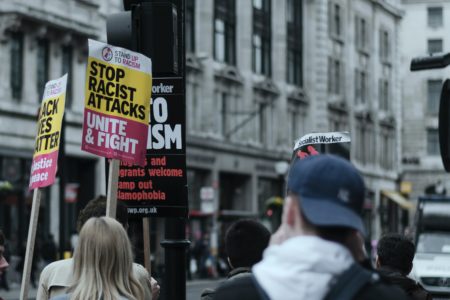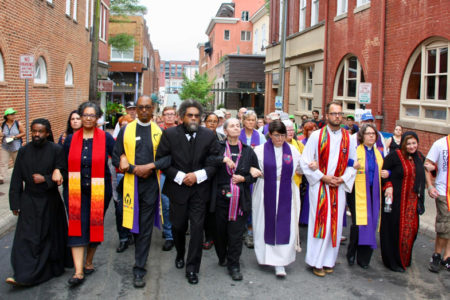Monday night is half-price movie night and the other week I walked down to see the latest film by director Spike Lee BlackKklansman.
It tells the (true) story of Ron Stallworth, a young African American police officer who in 1973 managed to infiltrate the local branch of the Klu Klux Klan. To pull this off Stallworth needed to do two things. He never showed up at a Klan meeting (he sends a white, Jewish colleague in his place), and he needed to speak in two dialects. At one point in the movie Stallworth boasts: “I can speak the King’s English, and I can talk jive”.
In a phone conversation with David Duke (who would later become the Grand Wizard of the KKK and supported Donald Trump’s presidential campaign), the issue of language or, more accurately, of pronunciation comes up.
“I can always tell when I am talking to a Negro”, Duke says, “[but] I can tell that you’re a pure, Aryan white man by the way you pronounce certain words”.
For the audience, the joke is that they can see Stallworth, complete with dark skin and wide afro.
But the deeper point is more serious. In so many of our communities, whether they are countries or churches, the only chance of belonging is if you speak the language in a way that those in charge can understand.
It is often stated that we belong to a multicultural church, and that Australia is a multicultural society.
What is less often seen or stated is that within this cultural diversity there is one culture that is not like the rest.
I am talking about being ‘white’. This isn’t just about skin colour. To be white is to belong to, or to associate with, a particular history and a way of seeing the world that views everything and everyone else as ‘different from us’.
It is to think that cultural diversity is what happens when ‘we’ need to work out how to live with ‘them’, the people who aren’t like us.
To be white is to divide humanity into categories of race and culture in a way that assumes our culture, history, and language to be somehow normative, which, of course, renders everything else a form of deviance.
We – no, let me make this personal – I have learned to see the world this way because of a particular history.
In that history, some people created the category of ‘race’ as a way of justifying taking land and destroying life and culture that belonged to other people.
The result of that history is that we expect others to speak our language in a way that we can understand.
To be white is to occupy a privileged position in a world created by colonialism and invasion.
Ta-Nehisi Coates makes the point in his exquisite and powerful letter to his teenage son, Between the World and Me:
“…race is the child of racism, not the father … Difference in hue and hair is old. But the belief in the preeminence of hue and hair, the notion that these factors can correctly organise a society and that they signify deeper attributes, which are indelible — this is the new idea at the heart of these new people who have been brought up hopelessly, tragically, deceitfully, to believe that they are white.”
Now, there is a whole body of thinking, reflection, writing, and scholarship that lies behind a statement like that. But for me those words function as a constant personal reminder.
I have been raised ‘hopelessly, tragically, deceitfully’ to believe that I am white, and it affects everything. I can no more escape it than I can crawl out of my own skin.
“Racism is not merely a simplistic hatred. It is, more often, broad sympathy towards some and broader scepticism toward others,” Coates writes.
I am guilty of such racism, and should acknowledge it. I should also work to understand how it shapes my view of the world and my relationships with others in ways that harm. And where possible, I should do the hard work of changing my attitudes, behaviour, and expectations.
The implications of this for the UCA and for Australian society are also far-reaching. In all our celebration of multicultural diversity we aren’t as attentive as we should be to questions of power, and the past and present realities of the racism that is endemic within and beyond the church.
Too often our talk of welcome and hospitality is genuine, but that disguises our reluctance to do anything more than expect other people to speak in a way that we can understand.
There is also a good deal of theological work to be done, unpicking the ways in which we have painted and preached and interpreted and lived the gospel in various shades of white.



